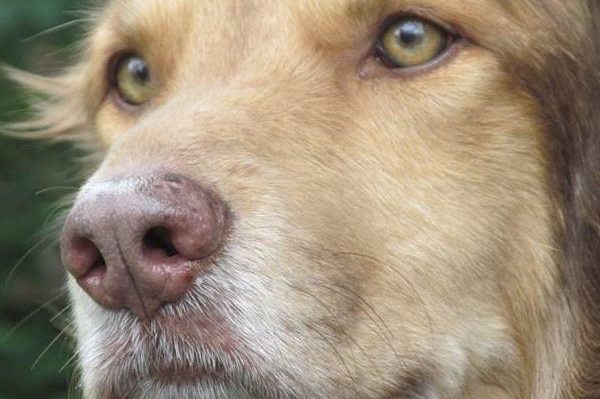
A month ago, boarding a plane to travel from Atlanta to San Diego put one passenger in a very scary situation. He was attacked and bitten severely by an emotional support dog accompanying the man in the next seat. Here’s the story, as reported by Fox 5 News in Atlanta.
Delta passenger bitten by emotional support dog at Atlanta airport
Published June 05, 2017—Fox News
Delta Air Lines has confirmed that a passenger flying out of Hartsfield-Jackson Atlanta International Airport was bitten by an emotional support dog just before his flight to San Diego was scheduled to depart Saturday.
According to Fox 5, the passenger’s injuries were so severe that he was taken off the plane to receive immediate medical attention.
“The gentleman’s face was completely bloody—blood in his eyes, cheeks, nose, his mouth. His shirt was covered in blood,” witness and fellow passenger Bridget Maddox-Peoples told Fox 5, adding that the man appeared “noticeably shaken up.”
The victim, who has not been named, was reportedly seated by the window while the dog’s owner was sitting in the middle seat with the emotional support animal, which, according to Maddox-Peoples, appeared to be a lab mix weighing approximately 50 pounds.
A different passenger told Fox 5 that Delta flight crew were heard saying that the dog’s owner was a “combat veteran,” and after the biting incident, he was allegedly “cradling the dog in his arms in the gate area” and crying. Cabin crew allegedly said the dog’s owner was also heard repeatedly saying, “I know they’re going to put him down.”
Delta issued the following statement to Fox 5:
“Prior to pushback of flight 1430, ATL-SAN, a passenger sustained a bite from another passenger’s emotional support dog. The customer who was bitten was removed from the flight to receive medical attention. Local law enforcement cleared the dog, and the dog and its owner were re-accommodated on a later flight; the dog will fly in a kennel.”
A representative for Delta Air Lines was not immediately available for comment.
http://www.foxnews.com/travel/2017/06/05/delta-passenger-bitten-by-emotional-support-dog-at-atlanta-airport.html#
Here’s a more detailed account of the incident:
According to the statement, Jackson was assigned a window seat on the left side of the plane. When he approached his aisle, Mundy was sitting in the middle seat with his dog in his lap.
According to witnesses, the approximately 50-pound dog growled at Jackson soon after he took his seat. The dog continued to act in a strange manner as Jackson attempted to buckle his seat belt. The growling increased and the dog lunged for Jackson’s face.
The dog began biting Jackson who could not escape due to his position against the plane’s window. The dog was pulled away by Mundy, but broke free from his grasp and attacked Jackson a second time.
The attacks reportedly lasted 30 seconds and resulted in profuse bleeding from severe lacerations to Jackson’s face. His injuries included a puncture through his lip and gum.
Massey said the injuries required immediate transport, by an ambulance, to the emergency room of a local hospital. Jackson received 28 stitches and is presently awaiting consultation with a plastic surgeon.
He also added that Jackson’s injuries will likely have permanent scarring.
http://www.al.com/news/mobile/index.ssf/2017/06/marlin_jackson_support_dog_bit.html

Incidents like this one, which occurred during a boarding process, and objections from passengers with phobias and allergies related to animals, are causing airlines in the United States to reconsider policies that currently allow emotional support animals to ride in the cabin of a plane with their handlers.
As more people bring “emotional support animals” on board planes—including pigs, turkeys, monkeys, and other unusual pets—airlines and mental health advocates are debating whether the practice should continue.
Both sides [met last year] in the Washington, D.C., area to come up with recommendations for a Department of Transportation panel . . .
Animals can soothe fliers suffering from anxiety, panic attacks, and phobias. But air carriers are frustrated that many healthy passengers are abusing the rules, claiming their pets are therapy animals to fly them for free in the cabin.
It’s also an issue for passengers with allergies and crews who must deal with the critters. Some flight attendants complain cabins now look like barnyards.
“The ‘emotional support animal’ situation is out of control,” Henry Harteveldt, travel industry analyst at the Atmosphere Research Group, told TODAY. “Most passengers don’t want to be on an airborne Noah’s Ark.”
As TODAY national investigative correspondent Jeff Rossen found out, it’s easy to get a pet designated an emotional support animal. All you need is a special vest and an official letter from a mental health professional. Lots of websites offer certifications; all you have to do is fill out a questionnaire.
“There is no question that some people cheat,” said George Hobica, founder of Airfarewatchdog.com. “Figuring out who the cheaters are is the hard part and may defy solution.”
Major U.S. carriers are in favor of no longer recognizing emotional support animals at all, or at least limiting the species allowed on board, according to a letter written this summer by a working group that’s co-chaired by an American Airlines attorney and includes United, JetBlue, Delta, and Frontier.
The letter called therapy pets “by far the source of most of the fraud and other problems” created by the current rules.
Mental health advocates also say it’s a difficult issue.
For Alicia Smith, who co-chairs the same working group on behalf of the National Alliance on Mental Illness, the main goal is to change the rules so that psychiatric service dogs—trained to help people with mental illness maintain balance or take medications, for example—are in the same category as service dogs helping people with physical disabilities. She believes there will be few objections to making that happen.
But emotional support animals, which don’t get special training and help their owners simply by being there, should still be recognized by airlines and not limited to a certain size or species, Smith believes.
“If they limit it to dogs, that becomes problematic. Dogs can be fairly high-maintenance, but a child who has autism [may be] calmed down by stroking a bunny’s fur,” she said.
“If they [limit the size], a lot of people who have existing emotional support animals will not be able to travel with them. What you’re saying is, these people can’t go home for Christmas if they have to fly.”
Both sides have been meeting since April [of 2016] to consider differences between the Air Carrier Access Act, which requires airlines to fly all service animals, except “certain unusual animals” such as snakes, ferrets, and spiders; and the Americans With Disabilities Act, which recognizes only dogs and miniature horses as service animals.
“Travelers’ abuse of emotional support animals makes it necessary for airlines and mental health advocates to collaborate to find reasonable, pragmatic, and enforceable compromises,” Harteveldt said.
“If reasonable compromises can’t be agreed upon, however, I believe airlines will argue that only service animals should be allowed on a plane.”
That would align the United States with the rest of the world. Emotional support animals are not accepted by airlines in other countries, according to the International Air Transport Association.
http://www.today.com/health/pig-plane-era-emotional-support-animals-flights-may-be-ending-t103065
The dog on the Delta flight was, as far as all reports go, a legitimate emotional support dog, issued to a military veteran, but that does not necessarily indicate the dog had extensive training—or any training—for public access and social situations. No training is required for a dog, or any other animal, to be an ES (emotional support) animal.
What is required to qualify an animal to be an ES animal? Next week, I’ll outline the process through which an animal can qualify to be a legitimate ES animal, both for in-cabin plane flights at no extra cost, and for housing situations.



